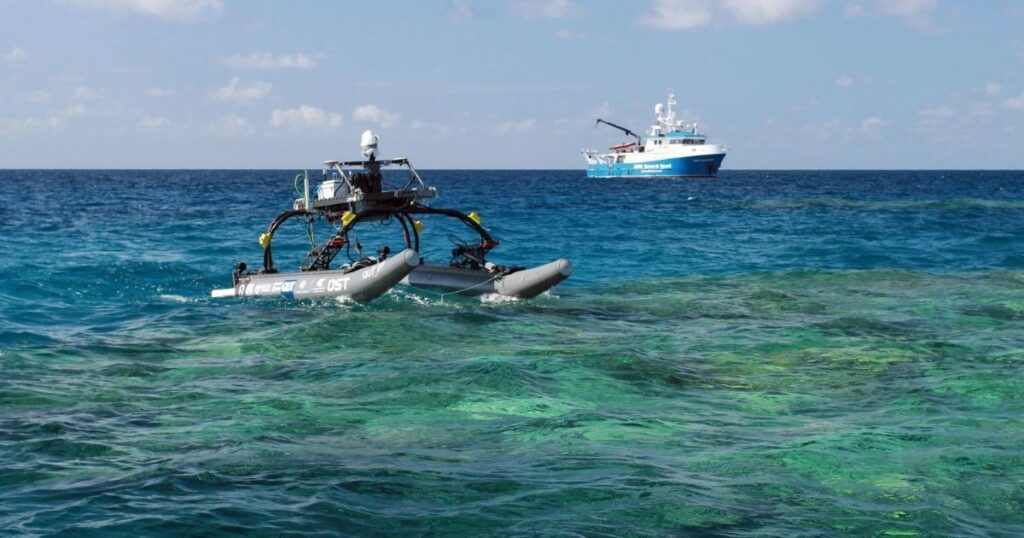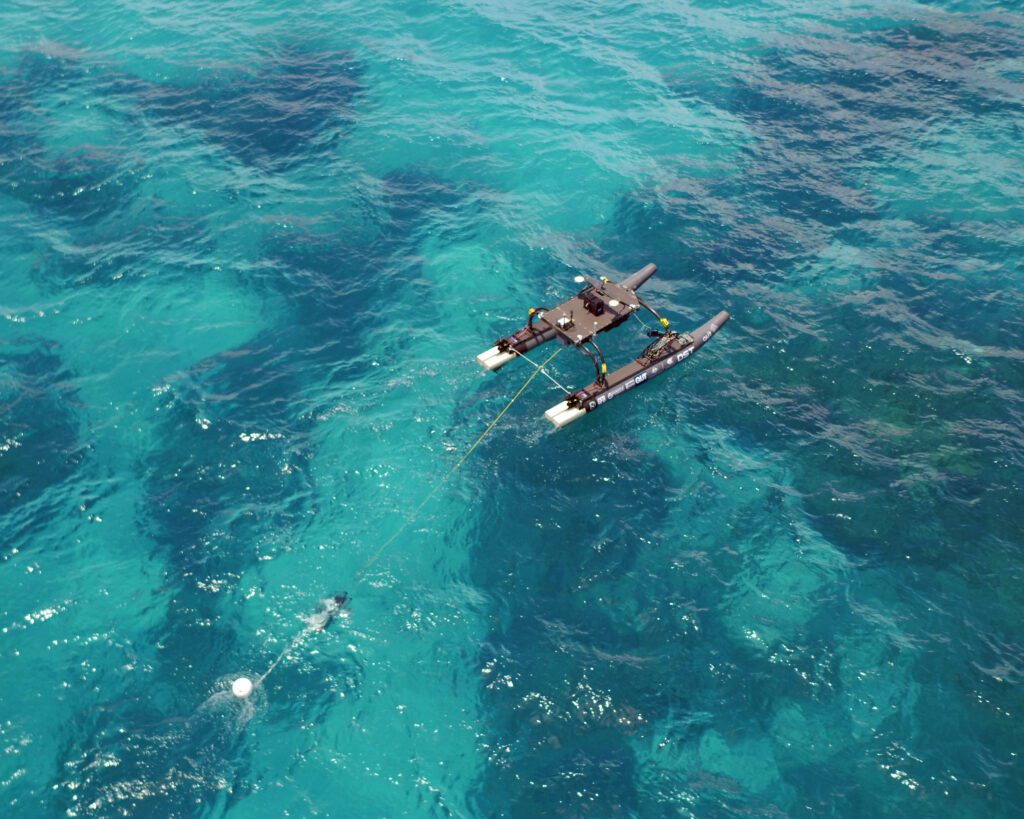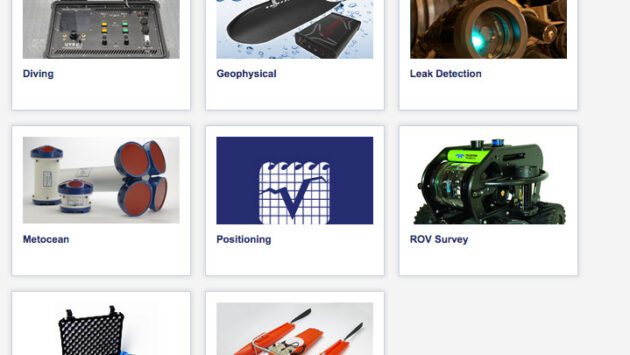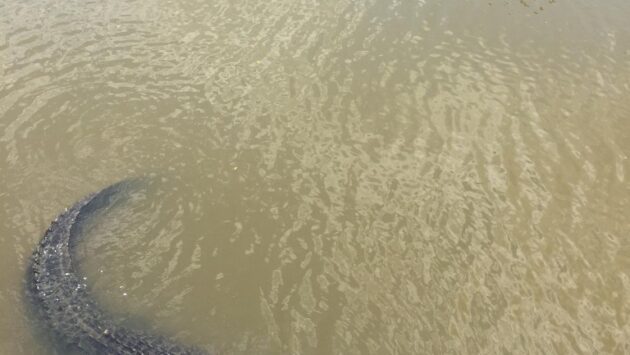Versatile WAM-V for Ocean Science Research
Assessing the Impacts of Climate Change on the Great Barrier Reef
The Australian Institute of Marine Science (AIMS), in partnership with Queensland University of Technology, has used a WAM-V Autonomous Surface Vehicle (ASV) manufactured by Marine Advanced Robotics to conduct an acoustic and optical survey of John Brewer Reef in the Great Barrier Reef system of North-Eastern Australia.
AIMS’ vision for marine monitoring extends from space to the seafloor using an integrated, multi-layered suite of tools working together to collect and translate field data into information efficiently. Autonomous platforms are at the heart of scaling AIMS’ routine observations.
Autonomous platforms can bring benefits in safety and improved quality, accuracy, and acquisition of data. AIMS has aerial drones with hyperspectral and regular imaging capabilities, and emerging autonomous underwater platforms. To assess an autonomous surface vessel capability, AIMS teamed up with Queensland University of Technology (QUT) to configure their sophisticated Wave Adaptive Modular Vessel WAM-V with a variety of payloads including camera systems, sonar systems and a towed platform to collect underwater georeferenced survey data of reef zones (this autonomous vessel was awarded 2nd place in the last two biennial International Maritime RobotX competitions).
Read More
Assessing the Impacts of Climate Change on the Great Barrier Reef with a WAM-V ASV
Autonomous systems approach for marine observations
Maritime RobotX Challenge 2022 in Sydney
 |
| The very shallow draft (0.5m) and stability of the WAM-V has the potential to be a game changer for survey operations across the reef flat and in the deeper water. |
 |
| AIMS teamed configured the WAM-V with a variety of payloads including camera systems, sonar systems and a towed platform to collect underwater georeferenced survey data of reef zones. |



